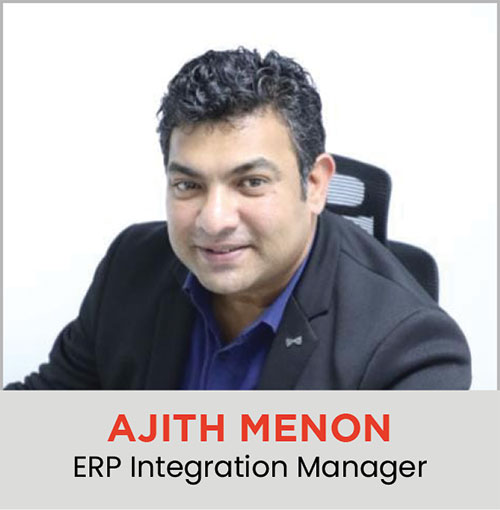 The Lean Management Training Workshop, organised by Ajith Menon, brought together our middle managers and warehouse supervisors for a focused half-day session on operational excellence. Designed to strengthen awareness and provide practical skills, the workshop emphasized three pillars: waste reduction, process flow, and time management. With a strong mix of theory and hands-on learning, it offered our teams a chance to pause, reflect, and reimagine the daily work practices.
The Lean Management Training Workshop, organised by Ajith Menon, brought together our middle managers and warehouse supervisors for a focused half-day session on operational excellence. Designed to strengthen awareness and provide practical skills, the workshop emphasized three pillars: waste reduction, process flow, and time management. With a strong mix of theory and hands-on learning, it offered our teams a chance to pause, reflect, and reimagine the daily work practices.
Training Objectives: Building a Lean Mindset
In today’s competitive landscape, operational excellence is more than just a strategy—it is a necessity. The first part of the workshop helped participants recognise the eight types of waste commonly found in operations. These wastes, often invisible in the flow of daily activity, can have a significant cumulative impact on cost, productivity, and customer satisfaction. Using relatable examples, the facilitator illustrated how seemingly small inefficiencies contribute to larger operational bottlenecks. By recognizing these patterns in current operations, managers and supervisors gained a sharper eye for spotting where resources are being drained unnecessarily. The session also explored process flow mapping and its direct impact on reducing lead time, reinforcing that operational agility is tied to how well processes are visualized, measured, and optimized.
The workshop stressed the importance of aligning roles and responsibilities, ensuring that every individual understands their contribution to waste reduction and process efficiency. Managers and supervisors reflected on how their decisions set the tone for daily operations. Small, everyday choices often determine the long-term effectiveness of the systems. From organizing warehouse layouts to scheduling runs, participants were encouraged to apply Lean filters when making decisions.
The most important takeaway was the mindset of continuous improvement. Fostering ownership at every level creates an environment where employees feel responsible for finding better, faster, and smarter ways of working.
Learning by Doing: Methods That Made a Difference
 A key strength of the workshop was its balanced format, combining theoretical learning with practical application.
A key strength of the workshop was its balanced format, combining theoretical learning with practical application.
Case studies drawn from familiar work environments illustrated how inefficiencies manifest in real-life tasks. These examples allowed participants to directly connect Lean principles with their own challenges. The workshop then turned to the practical application of Lean principles in daily decision-making and supervision.
Teams collaborated to map current processes, identify gaps, and propose improvements. This exercise encouraged cross-functional dialogue and broadened perspectives. Through role-based exercises, managers examined how their actions can either support or hinder Lean adoption. Supervisors and managers applied Lean knowledge directly to their responsibilities, learning how to integrate principles into leadership practices.
The session highlighted that applying Lean is not about adding new tasks but about changing the way existing tasks are approached. A lively, interactive Q&A with the external Lean expert deepened this learning. Drawing from their experience across industries, the facilitator challenged conventional assumptions and presented fresh perspectives. Participants were encouraged to challenge assumptions, think differently, and explore solutions that may not have been considered within the traditional frameworks.
Expert Guidance to Spark New Thinking
The Lean Management Workshop was more than a training session; it was a step forward in embedding operational excellence. By equipping the middle managers and supervisors with the tools and mindset to reduce waste, optimise flow, and take ownership of improvement, it’s a decisive step toward operational excellence. For the managers and supervisors, this meant recognising that their greatest contribution is not only in fixing immediate problems but also in developing their teams to think Lean. By modelling behaviours such as asking the right questions, encouraging experimentation, and celebrating incremental improvements, they play a pivotal role in cascading Lean thinking throughout the organisation.
The highlight of the program was the facilitation by the renowned Lean Management Consultant. With a wealth of experience across diverse industries, the consultant guided discussions, challenged conventional thinking, and shared practical insights that inspired participants to rethink their operational approaches. This external perspective added immense value, demonstrating how Lean principles can be universally applied yet customized to fit our unique business context.
The workshop reminded us that continuous improvement starts with us. Whether you’re managing a shift or mapping a process, every role matters. When leaders model behaviours like interest, experimentation, and celebrating small wins, we build a culture where Lean isn’t just a method—it’s a mindset. Lean is not a one-time initiative; it’s a way of working. When embedded into everyday decisions and leadership practices, it becomes a powerful engine for long-term excellence